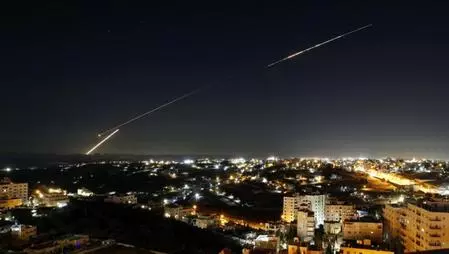
Iran claims over 1,000 people killed in war with Israel, says death toll could rise
text_fieldsIran has confirmed that its recent conflict with Israel resulted in 1,060 deaths, with officials warning that the toll could rise further due to the number of people critically injured.
The figure was announced by Saeed Ohadi, head of the Foundation of Martyrs and Veterans Affairs, during a state television interview on Monday.
Ohadi indicated that the death count might increase to around 1,100 as some of the wounded remain in serious condition. While Iran had initially sought to downplay the scale of Israeli strikes, it has begun to publicly acknowledge the extent of the damage following the ceasefire. However, the government has not provided details on military casualties.
Separately, the Washington-based Human Rights Activists group had previously reported that 1,190 people were killed in the conflict, including 436 civilians and 435 members of Iran's security forces, with another 4,475 individuals injured.
In a separate development, Iranian President Masoud Pezeshkian, in an interview with U.S. podcaster Tucker Carlson, alleged that Israel had attempted to assassinate him, Indian Express reported.
He claimed that Israel had indeed attempted to assassinate him, but the effort was unsuccessful. He stated that the attack targeted the location of a meeting he was attending, apparently based on intelligence gathered by Israeli operatives. However, the operation failed to achieve its objective.
During the interview, Pezeshkian also expressed a willingness to engage in dialogue with the United States, though he acknowledged that mutual trust would be a significant barrier.
He suggested that, in his view, the longstanding tensions between the two nations could be addressed through negotiations.
He further urged U.S. President Donald Trump to resist being influenced by Israel into initiating conflict with Iran.
According to Pezeshkian, Trump has the power to either steer the region toward peace and stability or risk dragging the U.S. into a prolonged and damaging conflict. He framed it as a critical decision that rests with the American leadership.






